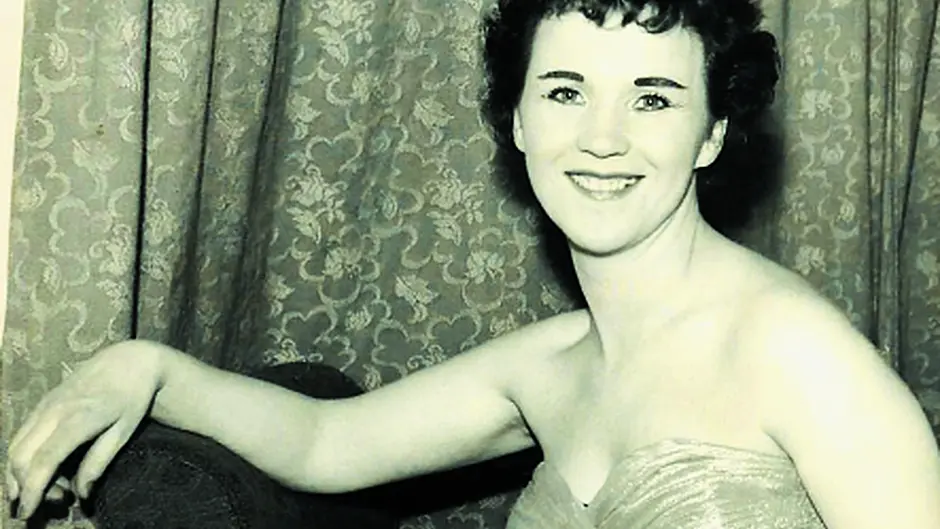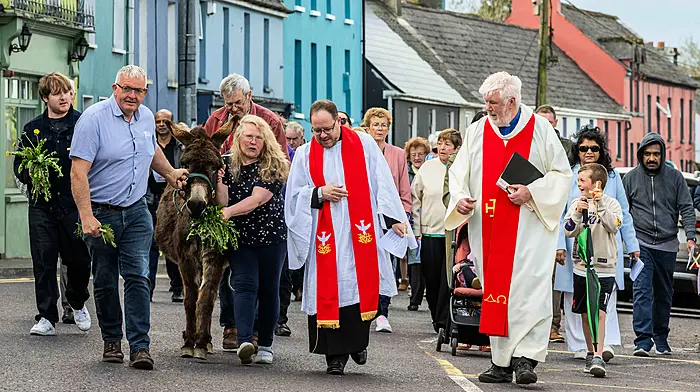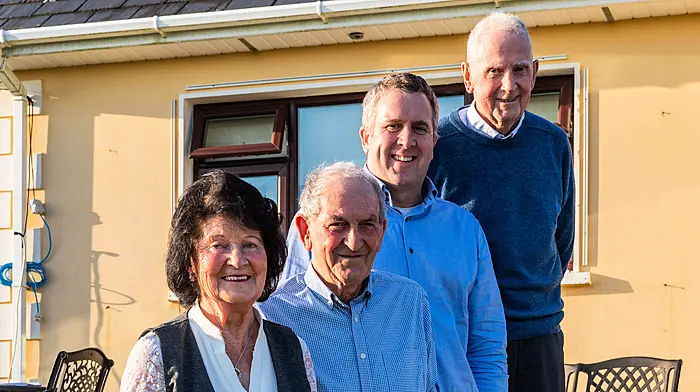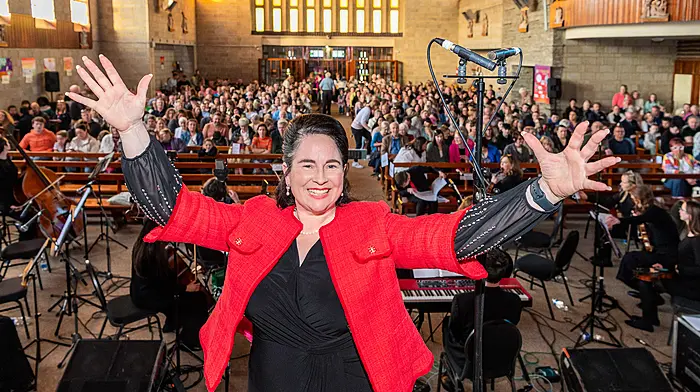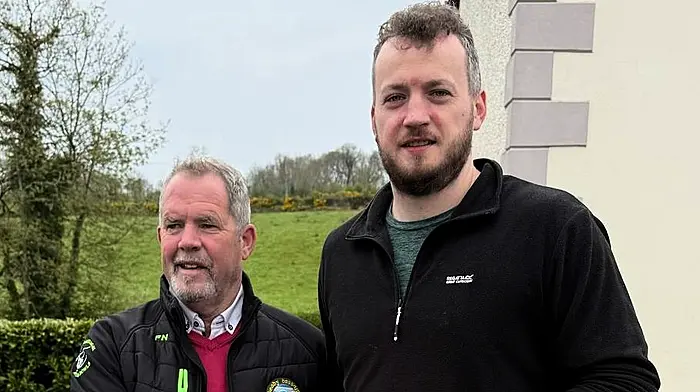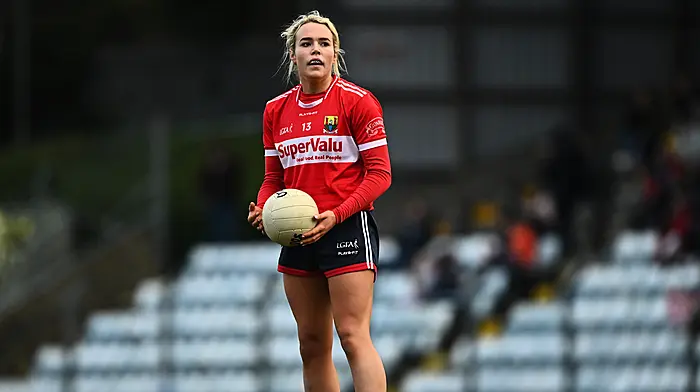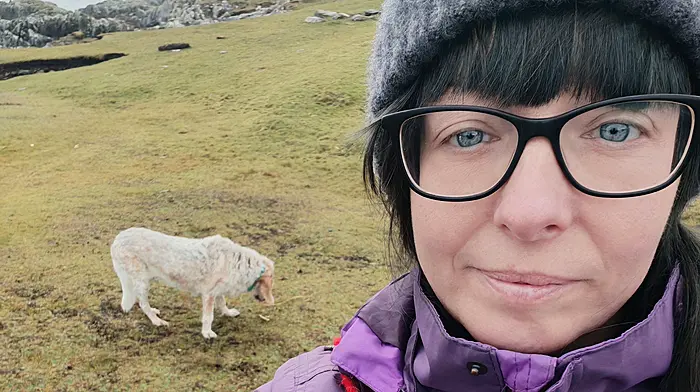The international singing star of the 50s had a fondness for West Cork, but behind her glittering career and fame lay a tragic personal life, her son Jim Livingstone tells Michelle Newman
REGARDED by many as Ireland’s first international pop star, Bridie Gallagher was one of a few women from her generation to achieve such unique success throughout Ireland, the UK and beyond.
And few realise her fondness for West Cork – and the fact that her family had, until recently, the copyright to the song Dear Old Skibbereen, one of her personal favourites.
Now her son, Jim Livingstone, has written a book Bridie Gallagher: The Girl from Donegal in honour of his late mother, which details her career highs, but also the personal lows Bridie experienced throughout her life.
‘One of the sad things I discovered while writing the book was that I had rather patronisingly thought I knew everything about my mother,’ says Jim. ‘I would encourage everyone to sit down with their parents and ask them questions, as I discovered things I never knew.’
At 24, Bridie left Donegal to work as a housekeeper in Belfast, where she started going to concerts in the Empire Theatre and St Mary’s Hall. Here she was spotted by Gus Hughes – the uncle of TV presenter Eamonn Holmes – who put her in a show, which was an immediate success.
Subsequently, Bridie began touring with Delia Murphy and comedian James Young, where she honed her skills as a singer, but was not yet recognised as a star in her own right.
It was not until one particular night in St Colm’s Hall in Derry in 1953 that marked a turning point in Bridie’s career, who by then was known as “Bridie Gallagher the Captivating Crooner”. A last minute change to her routine proved to be the making of her success. Jim describes how it was her taxi driver who suggested she sing the Irish ballads. ‘She was always singing in the car,’ he says. ‘The crowd went crazy and after that night, that was all she sang.’
By the mid-1950s Bridie Gallagher’s popularity had risen significantly and after the release of her debut single A Mother’s Love’s A Blessing in 1956. ‘She was never off the radio,’ says Jim. The venues she played attracted phenomenal audiences, with her management insisting she could play to no crowd of less than 1,000 people.
‘The beautiful thing about is, that even I, as her son, thought that must have been made up! I knew my mum was famous, but she couldn’t have been that famous!’
This fame came at a cost, though, and meant that Bridie was often separated from her family for long periods at a time. ‘She missed us terribly, I know that. It was very difficult for her, but she did her best,’ says Jim. He recalls how his mother said the only regret she had was that she didn’t see enough of her boys growing up.
Along with her dedication to her children, Bridie also had a special place in her heart for her home country. ‘She loved Ireland and her heart was always in Donegal, but she absolutely adored Cork,’ says Jim. ‘I can honestly say that after Donegal, the other county she loved the most was Cork.’
It seems that Bridie had a particular fondness for West Cork, too. She frequently played in Skibbereen, Dunmanway and also Leap, Schull and Ballydehob. ‘I remember very well, great nights in Cork ... I have very fond memories of Leap and Skibbereen,’ says Jim, who travelled with Bridie on the road in the 1970s and 1980s.
Interestingly, up until recent years, the Livingstone family retained ownership of the rights to Dear Old Skibbereen, one of Bridie Gallagher’s personal favourite songs.
Jim estimates in the early 1960s the rights to the song were bought, under Bridie’s married name of Livingstone, for around £20 to £40. While the earnings from recordings of the song were quite sizeable in the past, royalties in recent times amounted to ‘about £30 every year’.
‘She could have done the same with many other songs throughout her career but she didn’t, which says something about Cork and how much she adored the place and the people,’ says Jim.
However, behind the spotlights, reality was not always so glamorous for Bridie and her family. ‘Many people like to believe that celebrities have a charmed life,’ Jim observes. ‘But she was just like the rest of us, and as Bridie used to say herself ‘everyone has a cross to bear’.
When Bridie’s marriage to Bob Livingstone ended in 1965, she couldn’t bring herself to tell her parents. Jim remembers it being extremely difficult for his mother having to ‘continuously cover up the situation’ as it was unknown to the public at the time, but notes that she managed and coped with the situation very courageously.
This, coupled with the tragic death of her son Peter, in a motorbike accident in 1976, saw Bridie begin to suffer bouts of depression. During this time Jim recalls his mother being ‘desperately unhappy ... in a very dark place’, unable to keep performing due to the loss she had suffered.
Jim, a trained psychologist, encouraged his mother to get back on stage and do what she did best. Bridie once again returned to the stage in Manchester, something Jim says took ‘enormous courage’ on his mother’s behalf.
While her depression never fully went away, Jim fondly describes his mother as a very strong woman and describes the way in which she carried on after so much sadness as ‘a great testament to Bridie’s character’.
Although she had traditional values, in many ways Bridie Gallagher was ahead of her time in terms of her professionalism as an artist. She had a tremendous amount of respect and gratitude for her legions of fans.
‘Her attitude was the audience have paid money and they deserve the best, and she would not ever accept second best,’ remembers Jim. She was ‘incredibly professional’ but she also had a ‘wee bit of a temper and I was on the sharp end of the tongue a few times’.
Many younger singers of her generation looked up to and greatly admired her, while Bridie was always ready to help anyone with her advice or wisdom.
‘She knew Daniel O’Donnell very well growing up and they performed together in 1985. She was the first person to enlighten Daniel on the importance of stage make-up and to this day Daniel never appears on stage or television without it,’ says Jim.
‘She was recognised as a supreme presence in terms of her stage craft and rapport with the audience,’ says Jim. Bridie Gallagher, “The Girl from Donegal”, was like no other woman of her time.
The Girl from Donegal by Jim Livingstone, is published by The Collins Press, €19.99.

